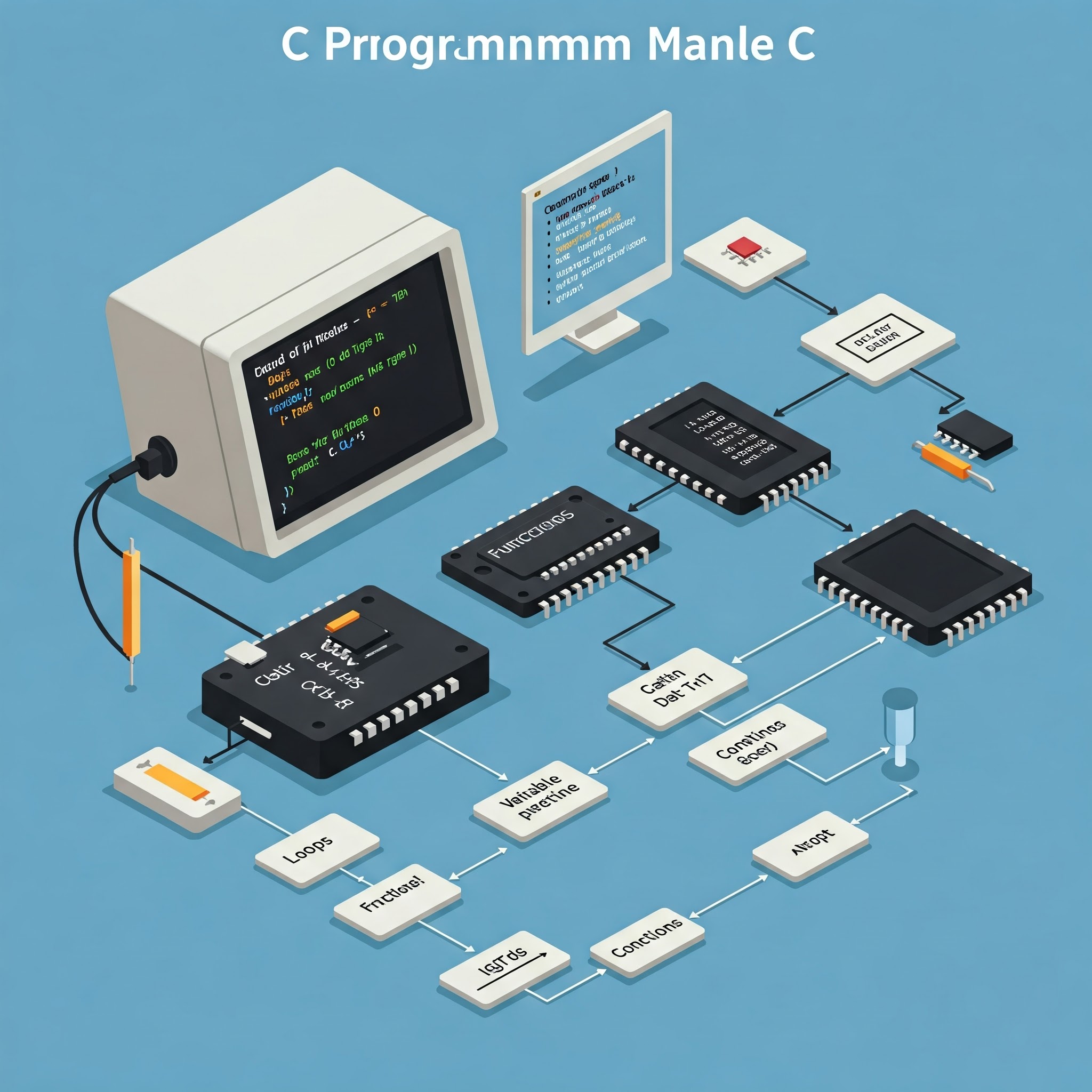C programming is considered the mother of all modern programming languages. Developed in the early 1970s by Dennis Ritchie at Bell Labs, C has served as the foundation for many contemporary languages including C++, Java, Python, and even parts of modern operating systems. Despite being more than five decades old, C continues to be widely taught and used in system programming, embedded systems, and performance-critical applications.
This blog explores the fundamental concepts of C programming and highlights its enduring relevance in today’s technology-driven world. It is aimed at beginners, students, and even professionals who want to revisit their foundational knowledge.
What is C Programming?

C is a general-purpose, procedural programming language that supports structured programming, lexical variable scope, and recursion. It offers low-level memory access and is known for its efficiency and performance.
Key Features of C:
- Procedural language
- Fast execution
- Direct memory access via pointers
- Simple yet powerful syntax
- Portability
Basic Concepts of C Programming
Understanding the core concepts is essential for mastering C. Here are the fundamental elements:
2.1 Variables and Data Types
Variables are named memory locations. C supports various data types such as:
- int – Integer
- float – Floating-point number
- char – Character
- double – Double-precision floating-point
2.2 Operators
C includes arithmetic, relational, logical, assignment, and bitwise operators that manipulate data and variables.
2.3 Control Structures
- Conditional Statements: if, else, switch
- Loops: for, while, do-while
2.4 Functions
Functions break a program into smaller, manageable parts. C allows user-defined functions and has many built-in standard library functions.
2.5 Arrays and Strings
Arrays store multiple values of the same type. Strings are arrays of characters ending with a null character (\0).
2.6 Pointers
Pointers are variables that store memory addresses. They are crucial in dynamic memory allocation and efficient array handling.
2.7 Structures and Unions
Structures allow grouping different data types. Unions are similar but share the same memory location for all members.
Importance and Relevance of C Programming
3.1 Foundation for Other Languages
Most modern languages like C++, Java, and Python have borrowed syntax and concepts from C. A strong C foundation makes it easier to learn these languages.
3.2 System-Level Programming
C is widely used in developing operating systems, embedded systems, and device drivers due to its low-level capabilities.
3.3 Performance-Critical Applications
In performance-intensive areas such as gaming engines, graphics, and network systems, C offers unmatched speed and control.
3.4 Portability
C programs are highly portable, meaning they can be compiled and run on different machines with minimal modification.
3.5 Widely Supported
C compilers and development environments are available across virtually all platforms.
3.6 Legacy Code Maintenance
Many critical systems, including UNIX and Linux kernels, are written in C. Understanding C is essential for maintaining or enhancing such systems.
How to Get Started with C Programming
- Install a Compiler: GCC (GNU Compiler Collection) or Turbo C.
- Choose an IDE: Code::Blocks, Dev C++, or even a simple text editor with terminal.
- Write a Simple Program:
#include <stdio.h>
int main() {
printf(“Hello, World!\n”);
return 0;
}
- Compile and Run: Use gcc filename.c -o output and then ./output
10 Frequently Asked Questions About C Programming
1. What is the difference between == and = in C?
- == is a comparison operator, while = is an assignment operator.
2. What are header files in C?
- Header files like stdio.h or math.h contain function declarations and macros used in C programs.
3. Why is main() function necessary?
- It is the entry point of a C program where execution begins.
4. What is a pointer?
- A pointer is a variable that holds the address of another variable.
5. What is the use of printf()?
- It is used to display output on the screen.
6. Can a C program run without main()?
- Technically, no. The main() function is essential for program execution.
7. What is recursion in C?
- A function calling itself to solve a problem.
8. What is the difference between while and do-while loop?
- while checks condition before executing; do-while checks after.
9. What is a segmentation fault?
- It occurs when a program tries to access memory that it shouldn’t.
10. How is memory managed in C?
- Through dynamic allocation using malloc, calloc, realloc, and free.









+ There are no comments
Add yours